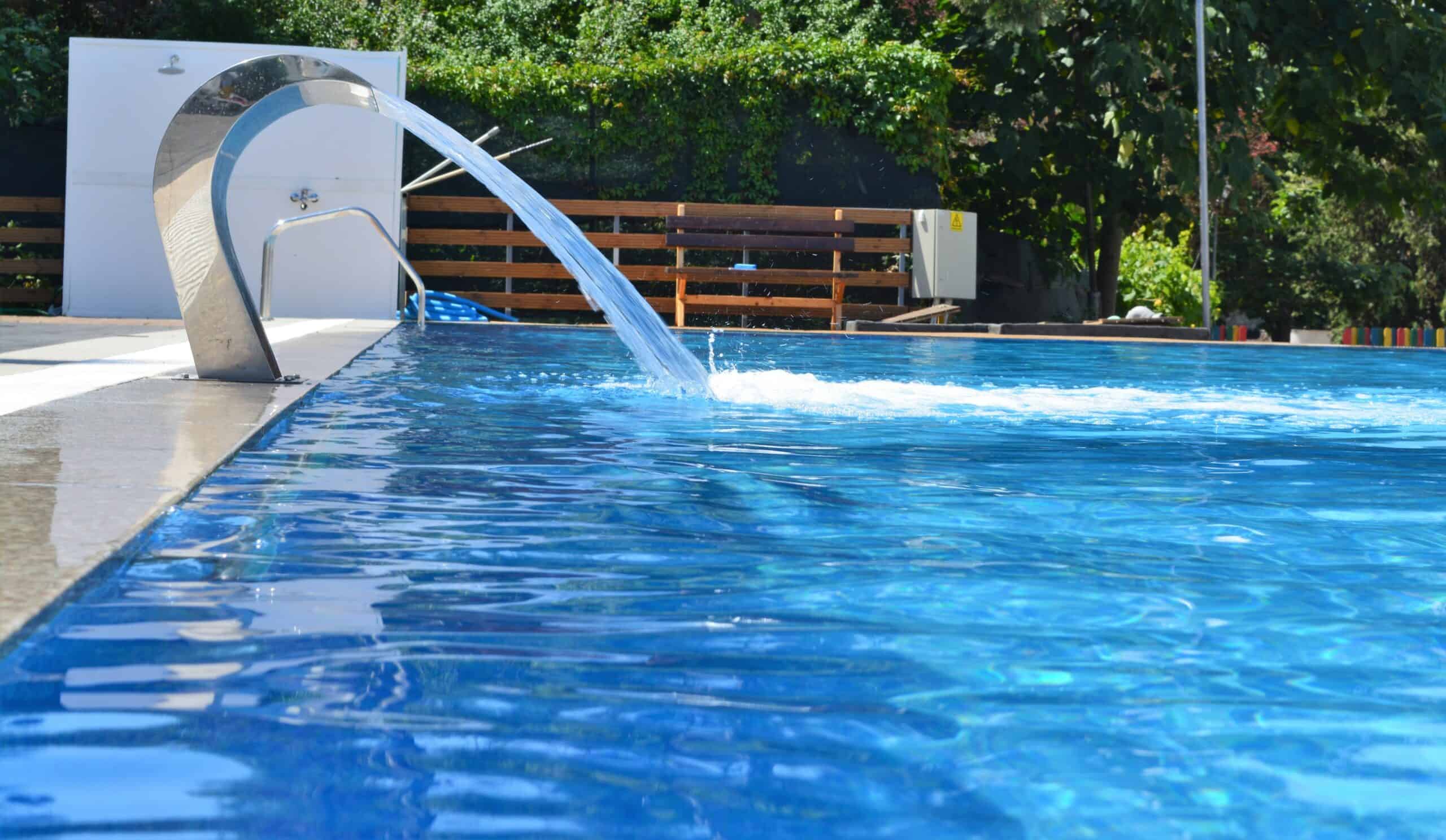One of the things you may never need to test for but do need to keep an eye on is the elevated presence of metals in your salt water pool. You may never experience an issue with excessively high metals in your pool water but if you have unexplained stains, you may have a problem.
Your pool company can test for metals if you take a water sample to them. You can also purchase test strips that identify metals like iron and copper that are often found in pool water along with chemical products to lower metal content in the water.
Most salt water pools will contain trace metals in the water but high metal content can cause stains on your liner or other surfaces of your pool. High metal content is mostly a problem for the look of your pool as metal stains can be unsightly and difficult to remove.
You will likely always have some metal content in your pool water but the key is to keep it low enough that it doesn’t matter.
Below we’ll talk more about which metals often appear in water, how they enter the water and how to keep them in check.
What metals can enter my salt water pool?
Metals that commonly appear in pool water include:
- Iron
- Copper
- Magnesium
- Aluminum
- Manganese
- Zinc
- Silver
Iron and copper are two metals that commonly enter a pool in a variety of ways as we’ll see below.
In general terms, trace amounts of metals in your pool are normal and not harmful to swimmers although higher amounts can cause staining and discoloration to your vinyl pool liner or pool wall if it’s made from another substance such as fiberglass.
How do metals get in my salt water pool?
Metals can enter a pool’s water in a variety of ways including:
- From the water itself i.e. the water source used to fill your pool contains metals.
- Damaged or corroded metal piping – typically iron or copper – used to fill your pool may leech metals into the water.
- From pool chemicals such as algaecides which are often copper-based, commonly containing copper sulfate or copper chelates.
- From corrosion inside the pump, heater, filter, metal pipes, metal ladder or other metal pool equipment.
- From toys or other metal objects like hair clips that fall into the pool and lie on the pool floor.
- From metal objects such as fastening wires from winter pool covers that fall in during the winter.
- Metals from fertilizers, soil or other garden material that fall into the water.
- Heavy rainfall which can bring acidic water containing metals into the pool or simply wash metals into the water from around the pool area.
Sometimes you might seeing staining in a pool that isn’t from metals but rather from body washes, sunblock or suntan oils from swimmers that cause a ring around the pool walls.
You may also find rotting leaves (during winter for example) can stain the bottom of the pool as they disintegrate. Again, not a metal stain but it might still need to be removed.
How do I remove metals from my salt water pool?
In most cases, you don’t need to do anything with metals in your pool as long as the levels aren’t too high.
When do they become too high? When unexplained staining appears on the pool walls and/or floor that isn’t due to dirt, algae, etc.
In this case, you can use a chemical product (there are plenty available) to reduce the level of metals in your pool but you first want to ensure you eliminate the source of the high metal content to start with.
Do you have a rusty metal pool ladder? Is there visible corrosion on metal equipment that has contact with the pool water? Perhaps you should get your home water supply – assuming you use it to fill your pool – tested for metals. Many home water supplies are very hard.
Once you have the source of the high metals content sorted, you can eliminate the stains so that they don’t return.
How do I remove metals stains from my salt water pool?
The two main ways to remove stains from the pool liner or floor of your pool are:
Spot removing – You can remove individual and small stains by gently rubbing them with a towel or other cleaning device. Some people like to rub a vitamin C tablet on individual stains to lift them off.
Using a chemical product – In this case, one of many metal stain removing products can be added to pool water to eliminate the stains.
But if you only have one or even a handful of stains and you can reach them by hand, you might consider gently scrubbing them individually rather than dumping a product in the pool and hoping it does the trick.
Summary
Salt water pools with a quality chlorinator system tend to do a great job balancing pool water and keeping it that way. This can reduce the work involved by the salt water pool owner.
Metals are normally one thing that you may never need to test for or deal with. But if you happen to notice unexplained metal stains on the pool walls or floor and it’s not algae or dirt, it might indicate a metal problem.
Find the source of the metals – it’s most likely from the water supply itself or something falling into the water with metal content – and then get rid of the stain(s) by either removing them manually or with a chemical product.

